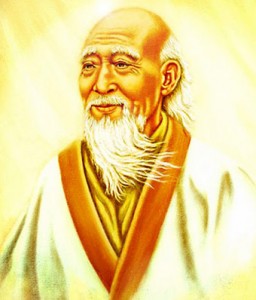06 Jul What did Lao Tsu Know About Feng Shui?
 The Tao Te Jing is a little book about the philosophy of life written around 2500 years ago by an unknown Chinese scholar. His had no legal name —“lao” means old and “tsu” means teacher or scholar. The story goes that he scribbled it down in a day on some bamboo strips and walked away. The rest is history.
The Tao Te Jing is a little book about the philosophy of life written around 2500 years ago by an unknown Chinese scholar. His had no legal name —“lao” means old and “tsu” means teacher or scholar. The story goes that he scribbled it down in a day on some bamboo strips and walked away. The rest is history.
Lao Tsu’s teachings have been divided into 81 chapters; it’s been translated by hundreds of experts and historians; and his words are still debated and discussed around the world today. The quote that touches me the most from the Tao Te Jing is from chapter 47 where Lao Tsu says:
Without leaving your home one can know the whole world.
Without looking out the window one can see the ways of Heaven.
(trans. By Jonathan Star).
I’m pretty sure he’s not telling us to refrain from traveling. I don’t think he’s encouraging house arrest or warning us about the dangers of venturing too far away. And I highly doubt he’s suggesting we isolate ourselves from the world. In fact, getting to “know the whole world” and living “in the world” are the basis of his teachings. What exactly does Lao Tsu mean?
Arguments could be made that Lao Tsu’s comments were directed to a metaphysical “home” — our inner home. Instead of looking at answers outside of ourselves, he is saying we already have the answers — we just need to search in our hearts. Another explanation could be a bit more community-based. During his lifetime, traveling even from one neighboring village to the next was often impossible. Lao Tsu may be referring to the lessons that can be learned by simply looking at the village as a microcosm of the world. When there was peace in the village, then your world would be peaceful.
But what if his phrase was directly addressing the specific space you called home? What, then, does his phrase imply? I think it simply comes down to the importance of living the details in an exalted way. How you do those small “unimportant” pieces of your life, how you manage your personal space, how you take care of where the intimate moments unfold — that is where you will learn your lessons, get the inspiration, find the creative answers, download the divine. It isn’t 4000 miles away in a cave somewhere, in a 1000-year-old ruin, in a cathedral or mosque — it’s in your attic, your closet, your office. The “ways of Heaven” are in your kitchen. I think we all need to look around and take in the world we call home with new eyes. Perhaps implementing some Feng Shui principles may help us all focus more clearly. It is, after all, our world.
